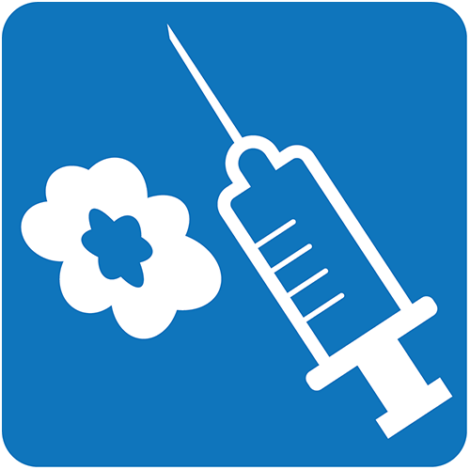
Immunotherapy or immune-oncology (IO) as it is sometimes referred, is a type of treatment for lung cancer. It works by helping the body’s immune system to recognise and destroy cancer cells. It can be used on its own or in combination with chemotherapy.
Cancer cells can sometimes find ways to trick the immune system into thinking they are normal cells and should not be attacked. This allows them to grow and spread. Immunotherapy treatment reactivates the immune system, helping it to recognise and attack the abnormal cancer cells.
The most common way of giving this is through a vein into your body. It is known as intravenous, or IV immunotherapy. This is given in a hospital setting as a day case admission.
Your respiratory team will have directly referred you to the doctors that offer immunotherapy; if this is the treatment you have been offered. They are called Medical Oncologists.
You will receive your treatment at The Meadows Unit at Eccleshill Community Hospital in Bradford. All appointments you have with your Oncologist and any treatment received will be administered at this unit.
You will be given contact numbers for the department. There is no charge to park at Eccleshill Community Hospital.
For more information on immunotherapy, visit the Macmillan Charity website.
We have created this video guide below to help you better understand the treatment process:
It is important to consider in your treatment plan some of the potential side effects that immunotherapy can cause.
Immunotherapy can sometimes cause your immune system to become overactive. This may cause your body to react against normal tissues. Your thyroid function may be affected; hypothyroidism is the commonest immune-related side effect.You will be given the number for the Acute Oncology Helpline. This is a telephone that is manned 24 hours a day, every day of the year where you should ring if you have any problems with side effects from treatment.
Your lung cancer nurse specialist team can answer any questions or concerns you have and help you to make any decisions you're unsure about. Please don't hesitate to contact them. You can find out more information and helpful links here on your patient journey microsite.
You can contact us using the Relay UK app. Textphone users will need to dial 18001 ahead of the number to be contacted.
Bradford Teaching Hospitals NHS Foundation Trust is a smoke-free organisation. You are not permitted to smoke or in use e-cigarettes in any of the hospital buildings or grounds.